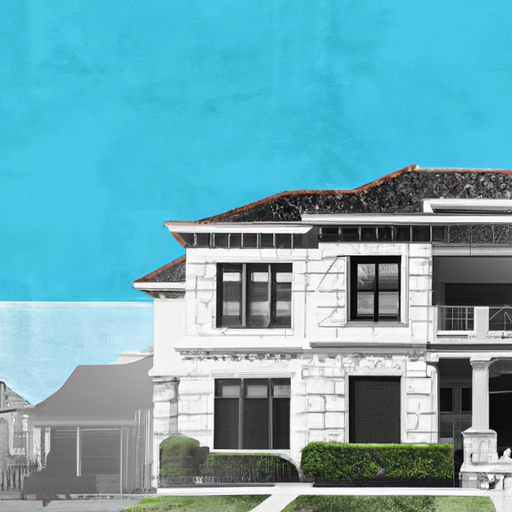If you’ve ever dreamed of owning your own home but found yourself wondering about the financial feasibility, you’re not alone. Many hopeful first-time homebuyers are unaware of the potential support available from government programs and incentives. With the rising cost of real estate and the challenges of saving for a down payment, it’s important to explore all options. In this article, we’ll delve into the world of government initiatives aimed at assisting first-time homebuyers, providing you with valuable information to help make your dream of homeownership a reality.
Federal Programs
Federal Housing Administration (FHA) Loan
The Federal Housing Administration (FHA) Loan is a program designed to assist first-time homebuyers in obtaining a mortgage with a lower down payment. With an FHA Loan, you may only need to provide a down payment of as little as 3.5% of the purchase price of the home. This can be a significant advantage for those who may not have a large amount of savings for a down payment. Additionally, FHA Loans have more lenient credit score requirements compared to conventional loans, making them accessible to a wider range of borrowers.
U.S. Department of Agriculture (USDA) Loan
The U.S. Department of Agriculture (USDA) Loan, often referred to as a rural development loan, is a government program that provides assistance to homebuyers in rural and suburban areas. One of the main advantages of the USDA Loan is that it offers 100% financing, meaning you don’t need to provide a down payment. This can be especially beneficial for first-time homebuyers who may have difficulty saving for a down payment. To qualify for a USDA Loan, you must meet certain income requirements, and the property you’re purchasing must be located in an eligible rural or suburban area.
Veterans Affairs (VA) Loan
The Veterans Affairs (VA) Loan is a program specifically designed to help military veterans, active-duty service members, and eligible surviving spouses become homeowners. VA Loans offer competitive interest rates and do not require a down payment or private mortgage insurance (PMI). This can make homeownership more affordable and accessible for those who have served our country. However, to qualify for a VA Loan, you must meet certain service requirements and obtain a Certificate of Eligibility (COE) from the VA.
Good Neighbor Next Door Program
The Good Neighbor Next Door Program is a unique homeownership program offered by the U.S. Department of Housing and Urban Development (HUD). This program allows law enforcement officers, firefighters, emergency medical technicians (EMTs), and pre-K through 12th grade teachers to purchase eligible HUD-owned homes at a 50% discount. This can be a significant benefit for those who serve our communities and are looking to become homeowners. To participate in the program, you must commit to living in the purchased home as your sole residence for at least 36 months.
Home Affordable Refinance Program (HARP)
The Home Affordable Refinance Program (HARP) is a federal program established to help homeowners who are struggling with their mortgage payments refinance into more affordable terms. While not exclusively for first-time homebuyers, HARP can benefit those who already own a home but are looking to refinance. HARP allows homeowners to refinance their mortgages with more favorable terms, even if they owe more on their mortgage than the current value of their home. This program can result in lower monthly mortgage payments, providing a financial lifeline to homeowners in need.
State-Level Programs
Down Payment Assistance
Many states offer down payment assistance programs to help first-time homebuyers bridge the financial gap of their down payment. These programs may provide grants, low-interest loans, or deferred-payment loans to reduce the upfront costs of purchasing a home. Each state’s programs may have different eligibility requirements and funding limits, so it’s important to research and understand the options available in your state.
First-Time Homebuyer Grants
Several states offer grants specifically for first-time homebuyers. These grants provide financial assistance to cover a portion of the home purchase price, closing costs, or other related expenses. Unlike loans, grants do not need to be repaid, making them an attractive option for those who may need additional financial support to become homeowners. Eligibility requirements and grant amounts vary by state, so it’s essential to research the specific grants available in your area.
Mortgage Credit Certificates
Mortgage Credit Certificates (MCCs) are state-level programs that provide eligible first-time homebuyers with a federal income tax credit. This credit can help reduce the amount of federal tax owed, increasing the amount of disposable income available to homeowners. MCCs can be a valuable financial incentive for first-time homebuyers, as they effectively lower the cost of homeownership over time. However, it’s important to note that MCCs may have income limits and other eligibility requirements.
Tax Credits and Deductions
In addition to MCCs, many states offer various tax credits and deductions to incentivize homeownership for first-time buyers. These can include credits for energy-efficient home improvements, deductions for mortgage interest payments and property taxes, and exemptions for certain home-related expenses. Taking advantage of these tax incentives can help reduce the overall cost of owning a home, making it more affordable and financially advantageous for first-time buyers.

Local Programs
City/Town First-Time Homebuyer Programs
Many cities and towns have their own first-time homebuyer programs that provide additional financial assistance or incentives for local residents. These programs may offer grants, forgivable loans, or special loan terms to help reduce the cost of homeownership. Some cities even have homeownership programs specifically designed for certain professions, such as teachers, nurses, or public servants. Researching the options available in your city or town can lead to valuable opportunities to make homeownership more accessible.
County First-Time Homebuyer Programs
Similar to city and town programs, county-level first-time homebuyer programs can provide additional financial support and incentives for local residents. These programs may offer down payment assistance, low-interest loans, or other forms of financial assistance to help individuals and families achieve their homeownership goals. Eligibility requirements and program offerings can vary by county, so it’s essential to research the specific programs available in your area.
Nonprofit Organization Programs
Nonprofit organizations, such as Habitat for Humanity, NeighborWorks America, and state-specific housing agencies, often offer programs and resources to assist first-time homebuyers. These organizations may provide grants, loans, or counseling services to help individuals and families navigate the homebuying process and overcome financial barriers. Connecting with reputable nonprofit organizations can provide valuable guidance and support as you embark on your journey to homeownership.
HUD Programs
Home Investment Partnerships Program (HOME)
The Home Investment Partnerships Program (HOME) is a federal program that provides grants to states and localities to create affordable housing opportunities for low-income households. While not specifically for first-time homebuyers, HOME funding can indirectly benefit this population by increasing the availability of affordable housing options within communities. These funds can be used for various purposes, including the construction, rehabilitation, and purchase of affordable housing units.
Housing Choice Voucher Homeownership Program
The Housing Choice Voucher Homeownership Program, also known as the Section 8 homeownership program, enables eligible individuals and families who receive rental assistance through the Housing Choice Voucher program to use their vouchers towards homeownership. This program allows participants to apply a portion of their rental assistance towards monthly mortgage payments, making homeownership a reality for those who may not have otherwise been able to afford it.
Indian Home Loan Guarantee Program
The Indian Home Loan Guarantee Program is designed to assist Native American individuals and tribes in securing home loans on designated trust lands. This program is administered by the Bureau of Indian Affairs (BIA) and provides loan guarantees to eligible borrowers, allowing them to obtain financing through approved lenders. The Indian Home Loan Guarantee Program offers a unique opportunity for Native American individuals and families to achieve homeownership on tribal lands.

Additional Incentives
Mortgage Loan Interest Deduction
One of the most well-known incentives for homeownership is the mortgage loan interest deduction. This federal tax deduction allows homeowners to deduct the interest paid on their mortgage from their taxable income, potentially reducing their overall tax liability. This deduction can result in significant savings for homeowners, making homeownership more financially advantageous compared to renting.
Mortgage Credit Certificates (MCCs)
As mentioned earlier, Mortgage Credit Certificates (MCCs) can provide first-time homebuyers with a federal income tax credit. This credit can be claimed each year on the borrower’s federal income tax return, reducing the amount of tax owed. The MCC effectively lowers the cost of homeownership by increasing the amount of disposable income available to homeowners.
Energy-Efficient Mortgage (EEM) Program
The Energy-Efficient Mortgage (EEM) Program is a federally recognized program that allows borrowers to finance energy-efficient improvements into their home loans. By incorporating the cost of energy-efficient upgrades, such as insulation, solar panels, or efficient appliances, into the mortgage, homeowners can increase their home’s energy efficiency and potentially save on utility costs. This program helps incentivize homeownership while promoting energy conservation.
Community Reinvestment Act (CRA) Programs
Under the Community Reinvestment Act (CRA), financial institutions are encouraged to meet the credit needs of their communities, including low- and moderate-income individuals and neighborhoods. As part of their CRA commitment, banks and credit unions may offer special loan programs, down payment assistance, or other incentives to support first-time homebuyers in the communities they serve. These CRA programs are primarily focused on increasing access to affordable homeownership for underserved populations.
Homeownership Voucher Program
The Homeownership Voucher Program, also known as the Section 8 homeownership program, allows individuals and families receiving rental assistance through the Housing Choice Voucher program to use their vouchers towards homeownership. This program provides eligible participants with financial assistance towards their mortgage payments, making homeownership more attainable for those in need of affordable housing solutions.
Tax Incentives
Mortgage Interest Deduction
The mortgage interest deduction is one of the most significant tax incentives for homeowners. It allows homeowners to deduct the interest paid on their mortgage from their taxable income. This deduction can result in substantial tax savings, especially in the early years of homeownership when the majority of the monthly mortgage payment goes towards interest.
Property Tax Deduction
Homeowners can deduct property taxes paid on their primary residence from their taxable income. This deduction provides additional savings and can help reduce the overall cost of owning a home. However, it’s important to note that the tax deductibility of property taxes may be subject to certain limitations, such as a cap on the total amount of state and local taxes that can be deducted.
Mortgage Points Deduction
When obtaining a mortgage, borrowers may have the option to pay discount points, which are upfront fees paid to the lender to lower the interest rate on the loan. The mortgage points deduction allows homeowners to deduct these prepaid interest payments from their taxable income. Deducting mortgage points can result in significant tax savings, especially for those who plan to stay in their home for an extended period.
IRA Withdrawal Exemption
First-time homebuyers may be able to withdraw money from their Individual Retirement Accounts (IRAs) for the purpose of purchasing a home without incurring the usual penalties. The IRA withdrawal exemption allows individuals to withdraw up to $10,000 from their traditional or Roth IRA without being subject to the early withdrawal penalty. However, any withdrawals from a traditional IRA will still be subject to income tax.
Homestead Exemption
Certain states offer a homestead exemption, which provides a reduction in property taxes for homeowners who use the property as their primary residence. This exemption can help lower the overall tax burden associated with homeownership and make owning a home more affordable. The eligibility requirements and benefits of the homestead exemption vary by state, so it’s essential to understand the specific rules in your state.
Qualification Requirements
Credit Score
For many government programs and incentives, including loans and assistance programs, your credit score plays a crucial role in determining your eligibility. While specific credit score requirements can vary depending on the program, having a higher credit score can generally improve your chances of qualifying for favorable terms and lower interest rates. It’s important to monitor and maintain a good credit score to maximize your options as a first-time homebuyer.
Income Limitations
Income limitations are often a consideration for government programs and incentives, especially those aimed at assisting low- to moderate-income individuals and families. These limitations are put in place to ensure that assistance is provided to those who truly need it. Eligibility for certain programs may be based on the percentage of the area median income (AMI) you fall below. Researching the income limitations for various programs can help you determine which ones you may qualify for.
Debt-to-Income Ratio
Your debt-to-income (DTI) ratio is another important factor that lenders and programs consider when assessing your eligibility. DTI ratio compares your monthly debt obligations to your monthly income and helps determine how much of your income is already committed to debt payments. Different loan programs and assistance programs may have different DTI ratio requirements. Understanding and improving your DTI ratio can make you a more attractive candidate for financial assistance programs.
Home Price Limitations
Some government programs and incentives, particularly loan programs, may have limitations on the purchase price of the home you can finance. These limitations ensure that assistance is targeted towards affordable housing options. Researching the home price limitations associated with different programs can help you narrow down your options and focus on properties that fall within the allowed price range.
Property Location Eligibility
Certain programs and incentives may have specific requirements regarding the location of the property you intend to purchase. These requirements may be related to the property being located in a certain geographical area, such as a rural area or a specific neighborhood targeted for revitalization. Understanding the property location eligibility criteria for different programs can help you identify opportunities that align with your desired location.
Application Process
Documentation Needed
When applying for government programs or incentives, it’s essential to gather and provide the necessary documentation to support your application. This can include income verification documents, such as pay stubs or tax returns, bank statements, proof of identity, and any additional documentation specific to the program you’re applying for. Gathering these documents early on can streamline the application process and help ensure a smooth experience.
Finding a Participating Lender
For loan programs, such as FHA, USDA, and VA loans, it’s crucial to find a participating lender who is approved to offer these specific loan products. Participating lenders are familiar with the program requirements and can guide you through the application process. Researching lenders in your area who offer government loan programs can help you find a lender that suits your needs and is experienced in working with first-time homebuyers.
Completing the Application
Once you’ve gathered the necessary documentation and selected a participating lender, you’ll need to complete the application for the specific program or incentive you’re applying for. This process may involve submitting an online application, filling out forms, and providing supporting documents. It’s important to carefully review the application requirements and ensure that all information is complete and accurate to avoid delays or potential issues with your application.
Approval Process
The approval process for government programs and incentives can vary depending on the specific program. For loan programs, the lender typically reviews your application, assesses your eligibility, and determines whether you meet the program requirements. The approval process may involve a credit check, income verification, and an assessment of your ability to repay the loan. Once you’re approved, you may receive a loan commitment letter or approval certificate, depending on the program.
Closing the Loan
If your application is approved, the final step in the process is closing the loan. This involves signing the necessary legal documents, such as the mortgage agreement and promissory note. During the closing process, you’ll also have the opportunity to review and understand the terms of the loan, including the interest rate, repayment schedule, and any applicable fees. It’s important to carefully read and ask questions about any documents you’re asked to sign to ensure you fully understand your obligations as a borrower.
Benefits and Limitations
Lower Down Payment
One significant benefit of many government programs and incentives, especially loan programs like FHA and USDA Loans, is the ability to make a lower down payment. Traditional mortgages typically require a down payment of 10% to 20% of the home’s purchase price. However, with these government programs, you may be able to secure a loan with a down payment as low as 3.5% or even 0% in the case of USDA Loans. This lower down payment requirement can make homeownership more accessible for first-time buyers who may not have substantial savings.
Reduced Interest Rates
Some government programs, such as VA Loans and certain state-specific programs, offer reduced interest rates compared to conventional loans. These lower interest rates can result in significant savings over the life of the loan, as they translate into lower monthly mortgage payments. The reduced interest rates are designed to make homeownership more affordable and help first-time buyers achieve their homeownership goals while saving money on interest expenses.
Additional Services and Support
Government programs and incentives often come with additional services and support to assist first-time homebuyers throughout the process. These services may include homebuyer education and counseling, financial planning resources, and assistance with finding participating lenders. Taking advantage of these additional services can help you navigate the complexities of the homebuying process and make informed decisions.
Program-Specific Limitations
While government programs and incentives offer valuable benefits, it’s important to note that each program may have its specific limitations and requirements. These limitations can include income limitations, purchase price limitations, and property location restrictions, as mentioned earlier. It’s crucial to review and understand these limitations to ensure that you qualify for the program and can align your goals with the available options.
Potential Restrictions and Requirements
In addition to program-specific limitations, government programs and incentives may have other restrictions and requirements that borrowers must comply with. These can include occupancy requirements, residency restrictions, and limitations on property use. It’s essential to carefully review the terms and conditions of each program to ensure that you can meet all the obligations associated with participation.
Conclusion
As a first-time homebuyer, you have a range of government programs and incentives at your disposal to help make your homeownership dreams a reality. From federal programs like FHA, USDA, and VA loans to state-level assistance programs and local initiatives, there are options available to suit various financial and geographical needs. Additionally, tax incentives and additional services can further enhance the affordability and support provided through these programs. By understanding the qualification requirements, navigating the application process, and exploring the benefits and limitations of each program, you can make informed decisions and leverage these resources to achieve your goal of becoming a homeowner. Remember to conduct thorough research, consult with professionals, and take advantage of the available resources to make the most of these opportunities. Happy homebuying!


